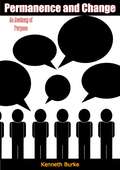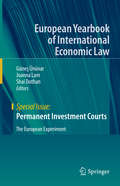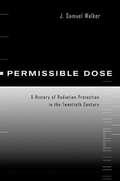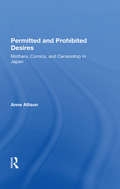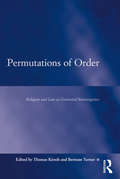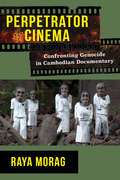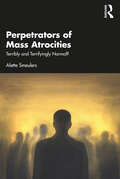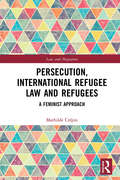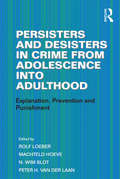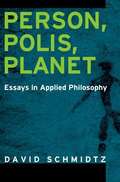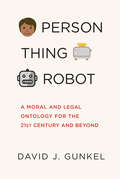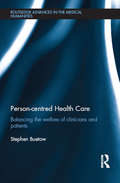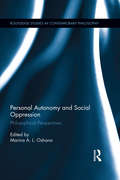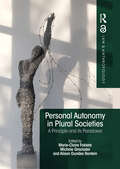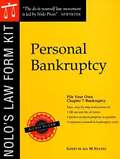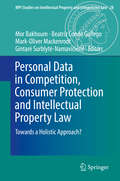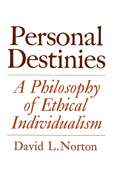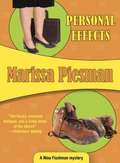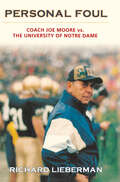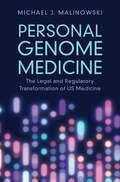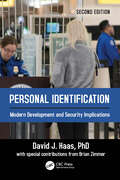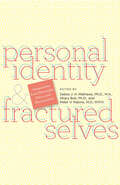- Table View
- List View
Perils of the Seas and Inherent Vice in Marine Insurance Law
by Ayça UçarThe Supreme Court ruling in Global Process System Inc. v Syarikat Takaful Malaysia Berhad (The Cendor MOPU) created a shock wave in the London marine insurance market, as the Supreme Court decision changed the boundaries of doctrine with respect to the meaning of ‘perils of the sea’ and ‘inherent vice’. Both phrases play an important role in the insurance market, affecting both assureds and insurers and their respective interests under all classes of marine insurance policies. This book reviews the origin of the clauses ‘perils of the sea’ and ‘inherent vice’ by tracing back through the early cases in order to understand the origin and noting how and why the changes occurred. It will examine how the law has been developed in the recent cases and discuss whether the Supreme Court case The Cendor MOPU has overruled the previous cases in terms of the clauses ‘inherent vice’ and ‘perils of the sea’. Considering the impact of The Cendor MOPU decision with respect to the Marine Insurance Act 1906, as well as the standard Institute Cargo Clauses, it evaluates whether the decision is consistent with these things and discusses the effect of the decision on recent cases and on the insurance market.
Perjury and Pardon, Volume II (The Seminars of Jacques Derrida)
by Jacques DerridaAn exploration of the political dimensions of forgiveness and repentance from Jacques Derrida. Perjury and Pardon is a two-year seminar series given by Jacques Derrida at the École des hautes études en sciences sociales in Paris during the late 1990s. In these sessions, Derrida focuses on the philosophical, ethical, juridical, and political stakes of the concept of responsibility. His primary goal is to develop what he calls a “problematic of lying” by studying diverse forms of betrayal: infidelity, denial, false testimony, perjury, unkept promises, desecration, sacrilege, and blasphemy. This volume covers the seminar’s second year when Derrida explores the political dimensions of forgiveness and repentance. Over eight sessions, he discusses Hegel, Augustine, Levinas, Arendt, and Benjamin as well as Bill Clinton’s impeachment and Nelson Mandela and Desmond Tutu’s testimonies before the Truth and Reconciliation Commission. The seminars conclude with an extended reading of Henri Thomas’s 1964 novel Le Parjure.
Permanence and Change: An Anatomy of Purpose
by Kenneth BurkePermanence and Change: An Anatomy of Change, written by American literary theorist Kenneth Burke, was first published in 1935, at the height of the Great Depression. Burke followed this with Attitudes Toward History followed just two years later. His texts proved to be revolutionary in the theory of communication, and, as classics, retain their surcharge of energy.Permanence and Change: An Anatomy of Change treats human communication in terms of ideal cooperation, and in this book, Burke establishes, in ground-breaking fashion, that form permeates society, just as it does poetry and the arts.This present volume is the Second Edition, first published in 1954, and includes an Introduction by Hugh Dalziel Duncan.“Unquestionably the most brilliant and suggestive critic now writing in America.”—W. H. Auden“One of the truly speculative American thinkers of his era.”—Malcolm Cowley“The foremost critic of our time and perhaps the greatest critic since Coleridge.”—Stanley Edgar Hyman“What Burke has done better than anyone else is to find a way of connecting literature to life without reducing either. He’s had far less attention than he deserves because he’d been so far ahead of his time. But he’s one of the major minds of the twentieth century, and he’s sure to be read in the future.”—Wayne Booth
Permanent Investment Courts: The European Experiment (European Yearbook of International Economic Law)
by Shai Dothan Güneş Ünüvar Joanna LamThis special issue focuses on the opportunities and challenges connected with investment courts. The creation of permanent investment courts was first proposed several decades ago, but it has only recently become likely that these proposals will be implemented. In particular, the European Commission has pushed for a court-like mechanism to resolve investment disputes in various recent trade and investment negotiations. Such a framework was included in some free trade agreements (FTAs) and investment protection agreements (IPAs) the European Union (EU) signed or negotiated with Vietnam, Singapore, Mexico and Canada. While it was shelved long before the publication of this Special Issue, the European Commission had also formally proposed a court system during the negotiations for the Transatlantic Trade and Investment Partnership (TTIP) agreement with the United States. The issue of a Multilateral Investment Court (MIC) has also been prevalent at the Working Group III proceedings of the UNCITRAL on investor-State dispute settlement reform, attracting scholarly and public attention.Will these developments lead to the creation of permanent investment courts? How will such courts change the future of international investment law? Will they bring about a real institutional change in adjudicatory mechanisms? Will they introduce a 'hybrid' system, which borrows important characteristics from both arbitration and institutional methods of international adjudication? How will the enforcement mechanisms work, and under which rules of ethics will its adjudicators function and exercise their duties? This special issue brings together leading scholars sharing a common interest in investment courts to address these questions.
Permissible Dose: A History of Radiation Protection in the Twentieth Century
by J. Samuel WalkerA concise and readable guide to the historical development of radiation protection standards by federal government agencies from the Manhattan Project to the present.
Permitted And Prohibited Desires: Mothers, Comics, And Censorship In Japan
by Anne AllisonDesire is both of and beyond the everyday. In an ad for running shoes, for example, the figure of a man jogging at dawn on the Serengeti Plain both evokes a fantasyof escape and invokes a disciplinary norm to stay fit. The bottom line for thead, of course, is to create a desire to consume, the promise being that with thepurchase of these shoes, the consumer can realize yet also transcend the daily exhortationto perform.To say this differently, there is something both real and phantasmic about desire.Yet this notion seems contradictory. Isn't there a difference between the desireto be fit, for example, which is realizable, realistic, and, in these senses, realand the desire to escape routine everydayness, which, for most of us, is inescapablemost of the time? But is exercise real or phantasmic? Certainly noteveryone works out, and even those who make exercise a part of their reality maydo so in order to pursue a fantasy about themselves. And are escapes from dailyroutines phantasmic or real? An escape from the everyday is far more realizablefor some people than even fitness. But here too what is fantasy blends into (andbecomes indistinguishable from) the real: A vacation away from work may be ameans of ensuring a higher level of work performance when one returns.
Permutations of Order: Religion and Law as Contested Sovereignties (Law, Justice And Power Ser.)
by Thomas G. KirschPermutations of Order makes an innovative and important contribution to current discussions about the relationship between religion and law, bringing together theoretically informed case studies from different parts of the world, relating to various types of politico-legal settings and religions. This volume also deals with contemporary legal/religious transfigurations that involve "permutations," meaning that elements of "legal" and "religious" acts of ordering are at times repositioned within each realm and from one realm to the other. These permutations of order in part result from the fact that, in ethnographic settings like those examined here, "legal" and "religious" realms are relational to-and in certain cases even constitutive of-each other and they result in categoric transpositions and new social positionalities through which, among other things, "the legal" and "the religious" are blended. Permutations of Order is a work that transcends convention, identifies new and theoretically overarching themes and will be of strong interest to researchers and policy-makers seeking a comparative focus on the intersections and disjunctions of religion and law.
Perpetrator Cinema: Confronting Genocide in Cambodian Documentary (Nonfictions)
by Raya MoragPerpetrator Cinema explores a new trend in the cinematic depiction of genocide that has emerged in Cambodian documentary in the late twentieth- and early twenty-first centuries. While past films documenting the Holocaust and genocides in Yugoslavia, Rwanda, and elsewhere have focused on collecting and foregrounding the testimony of survivors and victims, the intimate horror of the autogenocide enables post–Khmer Rouge Cambodian documentarians to propose a direct confrontation between the first-generation survivor and the perpetrator of genocide. These films break with Western tradition and disrupt the political view that reconciliation is the only legitimate response to atrocities of the past. Rather, transcending the perpetrator’s typical denial or partial confession, this extraordinary form of “duel” documentary creates confrontational tension and opens up the possibility of a transformation in power relations, allowing viewers to access feelings of moral resentment.Raya Morag examines works by Rithy Panh, Rob Lemkin and Thet Sambath, and Lida Chan and Guillaume Suon, among others, to uncover the ways in which filmmakers endeavor to allow the survivors’ moral status and courage to guide viewers to a new, more complete understanding of the processes of coming to terms with the past. These documentaries show how moral resentment becomes a way to experience, symbolize, judge, and finally incorporate evil into a system of ethics. Morag’s analysis reveals how perpetrator cinema provides new epistemic tools and propels the recent social-cultural-psychological shift from the era of the witness to the era of the perpetrator.
Perpetrators of Mass Atrocities: Terribly and Terrifyingly Normal?
by Alette SmeulersThe 9/11 attacks, as well as the ones in Madrid, London, Paris and Brussels; the genocides in Nazi Germany, Rwanda and Cambodia; the torture in dictatorial regimes; the wars in former Yugoslavia, Syria and Iraq and currently in Ukraine; the sexual violence during periods of conflict, all make us wonder: why would anyone do something like that? Who are these people? Drawing on 30 years of research, in this book Alette Smeulers explores the perpetrators of mass atrocities such as war crimes, crimes against humanity, genocide and terrorism. Examining questions of why people kill and torture and how mass atrocities can be explained, Smeulers presents a typology of perpetrators, with different ranks, roles and motives. Devoting one chapter to each type of perpetrator, the book combines insights from academic research with illustrative case studies of well-known perpetrators, from dictators to middlemen, to lower ranking officials and terrorists. Their stories are explored in depth as the book examines their behaviour and motivation. Perpetrators of Mass Atrocities thus provides a comprehensive understanding of the causes of extreme mass violence. Such knowledge not only can help the international criminal justice system to be able to attribute blame in a fairer way but can also assist in preventing such atrocities being committed on the current scale. Perpetrators of Mass Atrocities is essential reading for all those interested in war crimes, genocide, terrorism and mass violence
Persecution, International Refugee Law and Refugees: A Feminist Approach (Law and Migration)
by Mathilde CrépinThis book explores the ambit of the notion of persecution in international law and its relevance in the current geopolitical context, more specifically for refugee women. The work analyses different models for interpreting the notion of persecution in international refugee law through a comparative lens. In particular, a feminist approach to refugee law is adopted to determine to what extent the notion of persecution can apply to gender related forms of violence and what are the challenges in doing so. It proposes an interpretive model that would encourage decision makers to interpret the notion of persecution in a manner that is sufficiently protective and relevant to the profiles of refugees in the 21st century, most particularly to refugee women. The book will be of interest to academics and students in the field of public international law, international human rights law, international humanitarian law, immigration law, European law, and refugee law as well as those working in the areas of international relations.
Persisters and Desisters in Crime from Adolescence into Adulthood: Explanation, Prevention and Punishment
by Machteld Hoeve Peter H. LaanToo many juvenile delinquents persist in their offending into adulthood. They constitute a major burden for individual victims, for businesses and the justice system, all contributing to the total cost of crime for society. Focusing on the transition between juvenile offending and adult crime, this book examines research based on Dutch, European and North-American studies on the persistence and discontinuity of offending between late adolescence and early adulthood. Presenting empirical studies showing why persistence or discontinuity take place, the book provides up-to-date information on preventive and remedial interventions to promote discontinuity of offending amongst young adults. From the same team who produced 'Tomorrow's Criminals', this book will be a valuable resource for criminologists, criminal justice professionals, psychologists, sociologists, and psychiatrists interested in juvenile and young adult offenders, as well as those interested in what makes career criminals and youth who reform.
Person, Polis, Planet: Essays in Applied Philosophy
by David Schmidtz<p>This volume collects thirteen of David Schmidtz's essays on the question of what it takes to live a good life, given that we live in a social and natural world. Part One defends a non-maximizing conception of rational choice, explains how even ultimate goals can be rationally chosen, defends the rationality of concern and regard for others (even to the point of being willing to die for a cause), and explains why decision theory is necessarily incomplete as a tool for addressing such issues. <p>Part Two uses the tools of analytic philosophy to explain what we can do to be deserving ,what is wrong with the idea that we ought to do as much good as we can, why mutual aid is good, but why the welfare state does not work as a way of institutionalizing mutual aid, and why transferring wealth from those who need it less to those who need it more can be a bad idea even from a utilitarian perspective. Most ambitiously, Part Two offers an overarching, pluralistic moral theory that defines the nature and limits of our obligations to each other and to our individual selves. <p>Part Three discusses the history and economic logic of alternative property institutions, both private and communal, and explains why economic logic is an indispensable tool in the field of environmental conflict resolution. In the final essay, Schmidtz brings the volume full circle by considering the nature and limits of our obligations to nonhuman species, and how the status of nonhuman species ought to enter into our deliberations about what sort of life is worth living.</p>
Person, Thing, Robot: A Moral and Legal Ontology for the 21st Century and Beyond
by David J. GunkelWhy robots defy our existing moral and legal categories and how to revolutionize the way we think about them.Robots are a curious sort of thing. On the one hand, they are technological artifacts—and thus, things. On the other hand, they seem to have social presence, because they talk and interact with us, and simulate the capabilities commonly associated with personhood. In Person, Thing, Robot, David J. Gunkel sets out to answer the vexing question: What exactly is a robot? Rather than try to fit robots into the existing categories by way of arguing for either their reification or personification, however, Gunkel argues for a revolutionary reformulation of the entire system, developing a new moral and legal ontology for the twenty-first century and beyond.In this book, Gunkel investigates how and why efforts to use existing categories to classify robots fail, argues that &“robot&” designates an irreducible anomaly in the existing ontology, and formulates an alternative that restructures the ontological order in both moral philosophy and law. Person, Thing, Robot not only addresses the issues that are relevant to students, teachers, and researchers working in the fields of moral philosophy, philosophy of technology, science and technology studies (STS), and AI/robot law and policy but it also speaks to controversies that are important to AI researchers, robotics engineers, and computer scientists concerned with the social consequences of their work.
Person-centred Health Care: Balancing the Welfare of Clinicians and Patients (Routledge Advances in the Medical Humanities)
by Stephen BuetowPerson-centred health care is increasingly endorsed as a key element of high-quality care, yet, in practice, it often means patient-centred health care. This book scrutinizes the principle of primacy of patient welfare, which, although deeply embedded in health professionalism, is long overdue for critical analysis and debate. It appears incontestable because patients have greater immediate health needs than clinicians and the patient-clinician encounter is often recognized as a moral enterprise as well as a service contract. However, Buetow argues that the implication that clinician welfare is secondary can harm clinicians, patients and health system performance. Revaluing participants in health care as moral equals, this book advocates an ethic of virtue to respect the clinician as a whole person whose self-care and care from patients can benefit both parties, because their moral interests intertwine and warrant equal consideration. It then considers how to move from values including moral equality in health care to practice for people in their particular situations. Developing a genuinely inclusive concept of person-centred care – accepting clinicians as moral equals – it also facilitates the coalescence of patient-centred care and evidence-based health care. This reflective and provocative work develops a constructive alternative to the taken-for-granted principle of primacy of patient welfare. It is of interest to students and academics in the health and caring sciences, philosophy, ethics, medical humanities and health management.
Personal Autonomy and Social Oppression: Philosophical Perspectives (Routledge Studies in Contemporary Philosophy)
by Marina A.L. OshanaPersonal Autonomy and Social Oppression addresses the impact of social conditions, especially subordinating conditions, on personal autonomy. The essays in this volume are concerned with the philosophical concept of autonomy or self-governance and with the impact on relational autonomy of the oppressive circumstances persons must navigate. They address on the one hand questions of the theoretical structure of personal autonomy given various kinds of social oppression, and on the other, how contexts of social oppression make autonomy difficult or impossible.
Personal Autonomy in Plural Societies: A Principle and its Paradoxes (Law and Anthropology)
by Alison Dundes Renteln Marie-Claire Foblets Michele GraziadeiThis volume addresses the exercise of personal autonomy in contemporary situations of normative pluralism. In the Western liberal tradition, from a strictly legal and theoretical perspective the social individual has the right to exercise the autonomy of his or her will. In a context of legal plurality, however, personal autonomy becomes more complicated. Can and should personal autonomy be recognized as a legal foundation for protecting a person’s freedom to renounce what others view as his or her fundamental ‘human rights’? This collection develops an interdisciplinary conceptual framework to address these questions and presents empirical studies examining the gap between the principle of personal autonomy and its implementation. In a context of cultural diversity, this gap manifests itself in two particular ways. First, not every culture gives the same pre-eminence to personal autonomy when examining the legal effects of an individual’s acts. Second, in a society characterized by ‘weak pluralism’, the legal assessment of personal autonomy often favours the views of the dominant majority. In highlighting these diverse perspectives and problematizing the so-called ‘guardian function’ of human rights, i.e., purporting to protect weaker parties by limiting their personal autonomy in the name of gender equality, fair trial, etc., this book offers a nuanced approach to the principle of autonomy and addresses the questions of whether it can effectively be deployed in situations of internormativity and what conditions must be met in order to ensure that it is not rendered devoid of all meaning.
Personal Bankruptcy (2nd edition)
by Stephen R. EliasThis convenient personal bankruptcy kit provides step-by-step instructions and all the forms necessary to file for Chapter 7 bankruptcy. It explains how to: * assess the short and long-term effects of bankruptcy * obtain an "automatic stay" to keep creditors at bay * cancel or reschedule debts * appear in bankruptcy court * decide whether to see a lawyer and more. This second edition has been completely revised and updated. Good in all 50 states.
Personal Data in Competition, Consumer Protection and Intellectual Property Law: Towards A Holistic Approach? (Mpi Studies On Intellectual Property And Competition Law Ser. #28)
by Mor Bakhoum Beatriz Conde Gallego Mark-Oliver Mackenrodt Gintarė Surblytė-NamavičienėThis book analyses the legal approach to personal data taken by different fields of law. An increasing number of business models in the digital economy rely on personal data as a key input. In exchange for sharing their data, online users benefit from personalized and innovative services. But companies’ collection and use of personal data raise questions about privacy and fundamental rights. Moreover, given the substantial commercial and strategic value of personal data, their accumulation, control and use may raise competition concerns and negatively affect consumers. To establish a legal framework that ensures an adequate level of protection of personal data while at the same time providing an open and level playing field for businesses to develop innovative data-based services is a challenging task.With this objective in mind and against the background of the uniform rules set by the EU General Data Protection Regulation, the contributions to this book examine the significance and legal treatment of personal data in competition law, consumer protection law, general civil law and intellectual property law. Instead of providing an isolated analysis of the different areas of law, the book focuses on both synergies and tensions between the different legal fields, exploring potential ways to develop an integrated legal approach to personal data.
Personal Debt in Europe: The EU Financial Market and Consumer Insolvency
by Daniela Vandone Federico FerrettiPersonal debt remains an important factor in many economic models because it encourages people to use debt to finance consumption. Whether this model is sustainable for individuals or the countries in which they reside is an ongoing question of great complexity and many social and economic implications, not only for the burdened individuals and their countries, but also for the EU as a whole. In Personal Debt in Europe, Federico Ferretti and Daniela Vandone examine the 'dark side' of personal debt, or over-indebtedness, in social and economic terms. They employ cross-country consumer-level data to present the latest empirical studies on the problem, analyse these findings to better understand its nature and causes, and discuss the merits of proposed insolvency legislation and harmonisation initiatives in the EU.
Personal Destinies: A Philosophy of Ethical Individualism
by David L. NortonWhat is the meaning of life? Modern professional philosophy has largely renounced the attempt to answer this question and has restricted itself to the pursuit of more esoteric truths. Not so David Norton. <p><p>Following in the footsteps of Plato and Aristotle, Kierkegaard and Nietzsche, Jung and Maslow, he sets forth a distinctive vision of the individual's search for his place in the scheme of things. Norton's theory of individualism is rooted in the eudaimonistic ethics of the Creeks, who viewed each person as innately possessing a unique potential it was his destiny to fulfill. Very much the same idea resurfaced in modern times with the British idealists and Continental existentialists. <p><p>The author reviews these antecedents, showing how his theory differs from those of his predecessors. After a fascinating chapter on "The Stages of Life," Norton shows how the mature consciousness of one's destiny leads to direct, intimate knowledge of other persons, and how this in turn provides the basis for social morality. The conception of justice in which this theory culminates, rooted as it is in essential human differences, provides a challenging alternative to the much-discussed theories of Rawls and Nozick.
Personal Effects
by Marissa PiesmanNina Fischman has dated plenty of life's losers, but she has always steered clear of actual crazed killers. Unfortunately, the same can't be said of Nina's friend Susan, whose habit of making bad choices in the Man Department has turned deadly. Unfortunately, Susan left few clues about her final, fatal date: all Nina knows about him is that he wears contact lenses, likes to hike, and reads the New York magazine personals column. To catch the killer, the cops agree to provide back-up while Nina supplies the bait, in the form of a hike-happy personals ad.
Personal Foul: Coach Joe Moore vs. The University of Notre Dame
by Richard LiebermanIt was bad enough when popular offensive line coach Joe Moore sued the University of Notre Dame for age discrimination--but matters got much worse when the lawsuit uncovered disquieting evidence of unethical and inappropriate conduct in a football program widely regarded as a model of probity. This is the dramatic story of that explosive lawsuit, which tarnished Notre Dame's burnished football image: the winner of eleven national titles; the home of legends Knute Rockne, the Gipper and the Four Horsemen; the subject of innumerable books and films--Notre Dame football has been idealized as everything that is good and right about American sports competition and, indeed, about America itself. This riveting story begins in November 1996, when Bob Davie is hired as head coach to replace the beloved Lou Holtz. In one of his first-and most fateful-executive decisions, Davie fires 64 year old Joe Moore because--as Davie puts it--he needs someone younger for the job. Attorney Rick Lieberman takes on Joe Moore's case and in this absorbing book he describes the trial and the enormous tensions to which litigants like Joe Moore are subject. This is a David and Goliath story in which the Notre Dame attorneys attempt to destroy Joe Moore's reputation as both a coach and a man. In the process, Davie's own background comes under close scrutiny as a reporter's investigation reveals some damning evidence. And as the trial proceeds, Notre Dame's football program is shown to be rife with legal improprieties and inappropriate behavior involving both coaches and administrators. Anyone interested in sports, in the law, in stories of blatant injustice--and in Notre Dame--will find Personal Foul a fascinating, revealing and memorable read.
Personal Genome Medicine: The Legal and Regulatory Transformation of US Medicine
by Michael J. MalinowskiIn the years following FDA approval of direct-to-consumer, genetic-health-risk testing, millions of people in the United States have sent their DNA to companies to receive personal genetic health risk information without physician or other learned medical professional involvement. In Personal Genome Medicine, Michael J. Malinowski examines the ethical, legal, and social implications of this development. Drawing from the past and present of medicine in the U.S., Malinowski applies law, policy, public and private sector practices, and governing norms to analyze the commercial personal genome sequencing and testing sectors and to assess their impact on the future of U.S. medicine. Written in relatable and accessible language, the book also proposes regulatory reforms for government and medical professionals that will enable technological advancements while maintaining personal and public health standards.
Personal Identification: Modern Development and Security Implications
by David J. HaasPersonal Identification: Modern Development and Security Implications, Second Edition explains how personal identification – and REAL ID – became part of the American fabric along with their past century’s historical ID development. The development of the “trusted and secure” personal identification documents began with passports and has continued as social changes made IDs more essential. This book describes the convergence of technologies and hundreds of patents that produced our “trusted and secure” documents and IDs from our past right up through to today.Key factors, that created today’s need for public-issued mass ID, are addressed: Chronicles the effects of large and mobile populations beginning a century ago Chronicles the effects of “impersonal” electronic & computer communications at a distance, and not face-to-face The distribution of services and money by government agencies based on a person’s identity – including “age” and “group” criteria Describes recent national security and terrorism concerns that necessitates the need to know: “You are who you say you are.” Personal identification documents (IDs) and the societal need for “trusted” identification by the public is a relatively new social phenomenon. In 1900, most people did not need or have any IDs until passports, with a photograph of the individual, became mandatory when Great Britain entered World War I in 1914. In the United States, the State-issued driver’s license is probably the only trusted ID in one’s wallet today, but they became “trusted and secure” documents only recently with the requirement for REAL ID. With the first photo driver’s license issued by the State of Colorado in 1959, it took until 1984 for the last State (New York, 25 years later) to comply.As a direct result of 9/11, where terrorists used fake driver’s licenses to board planes, Congress passed the Real ID Act in 2005 to make all State-issued driver’s licenses more trusted, uniform, and tamper-resistant – what is now called the Enhanced Driver’s License with non-drivers being issued Enhanced Identification Cards. And with this, every US citizen can now possess a trusted and secure personal identification document.Personal Identification, Second Edition chronicles the path of personal identification measures – including the latest developments of Real ID. Scholars and professional security managers understand that stability, security, and safety necessitate these identity measures to ensure a safer America. The book explains the various stages and advances, providing readers with a unique study of this fascinating history of the relationship between identity and the means by which one validates and proves their own identity. The enactment of the REAL ID Act of 2005, with more secure and tamper-resistant documents for each citizen of the United States, is being instituted so that one can trust: “you are who you say you are.” The State-issued driver’s license is not a National ID Card – it is a Nationally Recognized ID for each citizen.
Personal Identity and Fractured Selves: Perspectives from Philosophy, Ethics, and Neuroscience
by Debra J. H. Mathews, Hilary Bok, and Peter V. RabinsThis book brings together some of the best minds in neurology and philosophy to discuss the concept of personal identity and the moral dimensions of treating brain disease and injury. The contributors engage a crucial question: When an individual’s personality changes radically because of disease or injury, should this changed individual be treated as the same person?Rapid advances in brain science are expanding knowledge of human memory, emotion, and cognition and pointing the way toward new approaches for the prevention and treatment of devastating illnesses and disabilities. Through case studies of Alzheimer disease, frontotemporal dementia, deep brain stimulation, and steroid psychosis, the contributors highlight relevant ethical and social concerns that clinicians, researchers, and ethicists are likely to encounter. Personal Identity and Fractured Selves represents the first formal collaboration between the Brain Sciences Institute and the Berman Institute of Bioethics, both at the Johns Hopkins University. The book asks neuroscientists and philosophers to address important questions on the topic of personal identity in an effort to engage both fields in fruitful conversation. Contributors: Samuel Barondes, M.D., University of California, San Francisco; David M. Blass, M.D., Johns Hopkins University School of Medicine; Patrick Duggan, A.B., Johns Hopkins Berman Institute of Bioethics; Ruth R. Faden, Ph.D., M.P.H., Johns Hopkins Berman Institute of Bioethics; Michael S. Gazzaniga, Ph.D., University of California, Santa Barbara; Guy M. McKhann, M.D., Johns Hopkins University School of Medicine; John Perry, Ph.D., Stanford University; Carol Rovane, Ph.D., Columbia University; Alan Regenberg, M.Be., Johns Hopkins Berman Institute of Bioethics; Marya Schechtman, Ph.D., University of Illinois at Chicago; Maura Tumulty, Ph.D., Colgate University


